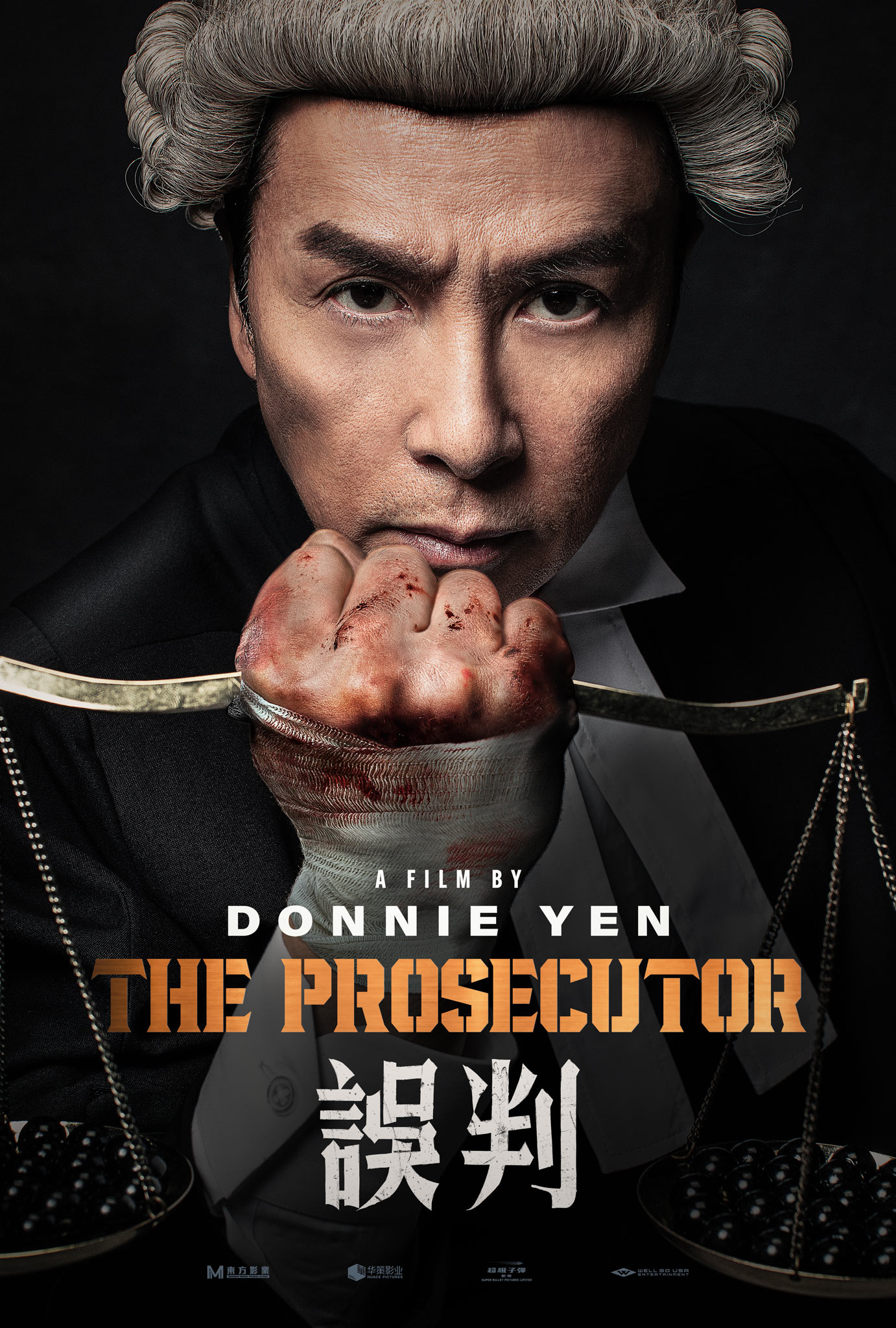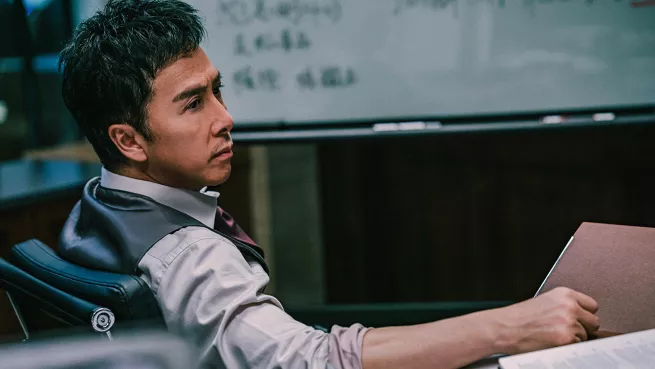Donnie Yen is a modern legend of action with movies like the Ip Man franchise, Flashpoint, SPL, John Wick: Chapter 4, Star Wars: Rogue One and many more. His latest film The Prosecutor has him in front and behind the camera; he stopped by to chat with me about making the film.
Hi Donnie. Nice to meet you.
Hi Eoin. Good to meet you.
Thank you for taking the time to chat with me.
Absolutely.
I loved The Prosecutor.
Thank you.
What was it about the script that appealed, that made you want to direct as well as act in it?
I didn’t want to do the film in the first place, so the company that I work with, we did Ip Man and Flashpoint in the past. So, they know me, and one day we were working on trying to develop Flashpoint 2 as well as Ip Man 5. And they said, “hey, I would love you to be in this film”. I said, “this subject, this is not what I do. I do action movies. I have no understanding of doing a movie about court cases and stuff like that”. So, it took me two months to be convinced. The company really felt that I fit the character in their script. I took the script, and I thought about it for two months, and I said, “if you want me to do this film, I have to kind of reshape how I tell the story. I don’t want to dive into trying to make another classic court scene. There’s plenty of them. We watched them. We know how good these films are in the past, right?” So, I wanted to kind of reshape the genre. Like, how do you combine action films into telling these court scenes, right? So, yeah, that’s what I did.
I believe this movie is inspired by true events…
Yeah, it is inspired, but I didn’t want it to stop in trying to tell a real story. That’s why it’s very important for the audience to understand it’s inspired by a real case, but I created more of a surreal world. Otherwise, you wouldn’t have a Donnie Yen or full-blown action scenes, right? In a real world, how do you have these scenes, right? So it was very tricky, and I needed to shape the film, to direct the film diligently, of how much truth I wanted to focus on the case, and at the same time, shaping an action movie.
The opening scene is fantastic. That action sequence with the POV camera shot. Can you talk about putting that together?
Thank you. I usually shape action scenes in my head, way before I start shooting the film. When I go through a scene, usually the process is like, I have a scene in my head, A to B, without the dialogues, and images are being formed in my head. So, when we were going through revising the scripts many times, before we started actual production, I already had in mind, I want to do a scene where it’s going to be more of a video game, POV type of style. So, I just kind of formed them together, and had my action team work on them, because I don’t really like to choreograph directly, as much as when I started in the business, like decades ago. For me, there’s a difference between choreography, action director, and actually directing the film. When you choreograph the fight scenes, or any action scenes, you’re trying to combine the shots together, or the moves together, but then ultimately, you have to depend on the action director, how he formed the shots, right? But even if you’re the action director, you’re forming the shots; it’s how you combine with this character, combining with the lines, combining of the storytelling. Ultimately, as I progressed as a filmmaker, I realized you gotta direct your action scenes to ultimately bring these actions, that exact image to the audience. You can’t just choreograph the movie, and not have the freedom to direct it. So, right now I leave my teams, I have my stunt team and action teams; I would ask them to choreograph some movements – does it fit into how I wanna tell the story? And a lot of times I just jump in and say “hey man, I don’t like that move, take out moves in here and there, because it kind of doesn’t flow with how I wanna tell the story”.

Away from the action, as a director, what’s your approach to building a good relationship with your actors?
You just gotta be open-minded, you gotta present your case, as well as listen to them. As an actor, you’re trying to be as objective as possible, you’re trying to shape your character, but as a director, you gotta be as subjective as possible, so you can hear them out. It’s communication, it’s all about communication and how do you deal with actors. I have a lot of them in this film; I have great veteran actors, but they’re all very cool and they have a lot of trust in me. So, it made my job a lot easier. I’m not like a junior filmmaker where sometimes it’s all about respect, right? So, we have mutual respect for each other, we just kind of talk it out like civilized filmmakers.
How would you like the film to resonate with audiences?
You know, I think as an audience, when you watch a film, everybody has different takes on what they want to get out of watching movies, right? Some people, it’s a soul search when they watch a movie. Some people, it’s just purely entertainment, right? So, I can’t please every single audience. What I want to do is to drive your emotion. When you watch my films, you’re going to be involved, you’re emotionally attached to it while you’re watching the film, right? With excitement. And this excitement can be adrenaline rides or emotional rides, right? That’s ultimately what I wanted to do with my films. It might be some logical questions to how you break down with film because everybody has a different perspective, right? So, like I said, you can’t win it all. But what I want to do ultimately is when you watch my film, I’ll say, “I’ll take you on a roller coaster”.
Absolutely. Well, thank you very much for taking the time to chat with me and all the best with the film.
Thank you. Take care. Bye.






